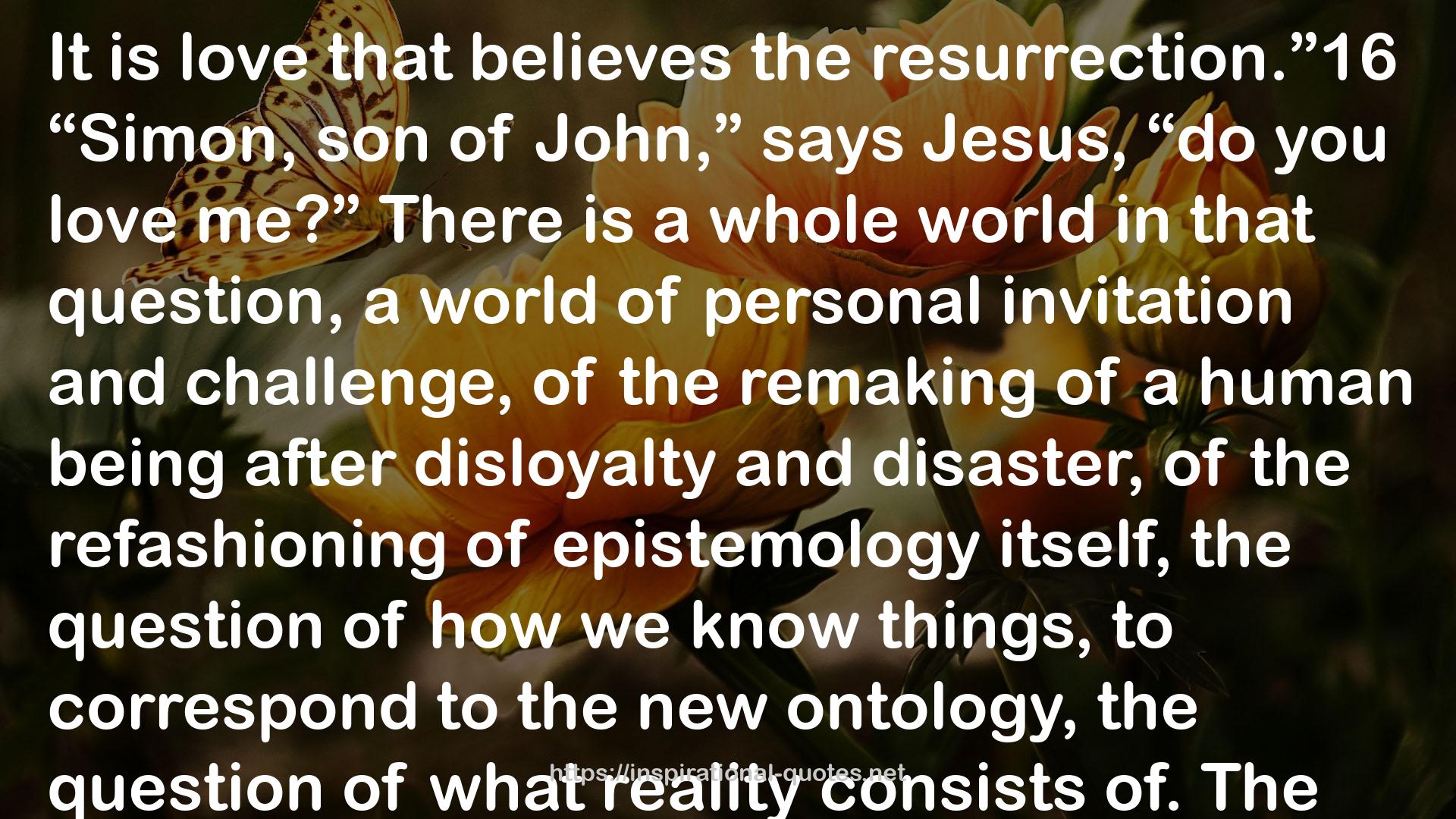" It is love that believes the resurrection.”16 “Simon, son of John,” says Jesus, “do you love me?” There is a whole world in that question, a world of personal invitation and challenge, of the remaking of a human being after disloyalty and disaster, of the refashioning of epistemology itself, the question of how we know things, to correspond to the new ontology, the question of what reality consists of. The reality that is the resurrection cannot simply be “known” from within the old world of decay and denial, of tyrants and torture, of disobedience and death. But that’s the point. To repeat: the resurrection is not, as it were, a highly peculiar event within the present world (though it is that as well); it is, principally, the defining event of the new creation, the world that is being born with Jesus. If we are even to glimpse this new world, let alone enter it, we will need a different kind of knowing, a knowing that involves us in new ways, an epistemology that draws out from us not just the cool appraisal of detached quasi-scientific research but also that whole-person engagement and involvement for which the best shorthand is “love,” in the full Johannine sense of agapē. "
― N.T. Wright , Surprised by Hope: Rethinking Heaven, the Resurrection, and the Mission of the Church
